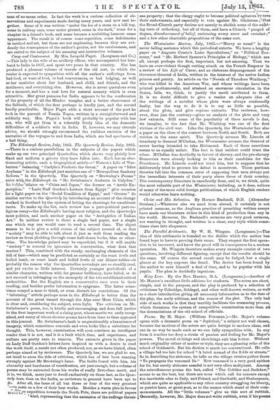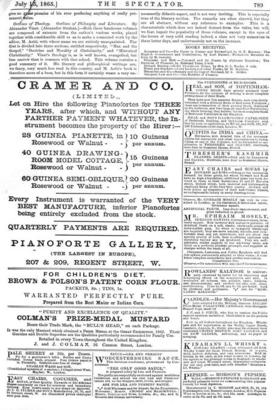Poems. By H. Major. (William Freeman.)—Mr. Major's volume , opens with
a dramatic poem on " Jephthah," a subject not well chosen, because the motives of the actors are quite foreign to modern ideas, and can in no way be made such as we can fully sympathize with. In any form it touches too deep a strain of passion and feeling for Mr. Major's powers. The moral etchings and sketchings suit him better. Without much originality either of matter or style, they are a pleasing echo of the school of Goldsmith. Bat his diction is much too conventional. He calls a village lad too late for school "A lated nomad of the fields or streets." So in describing the alehouse, he tells us the village cronies gather there "To propagate the venomed lie." Now venomed is a very good epithet for lie, but surely alehouse scandal is not very often malignant. Among' ' the miscellaneous poems the last, called " The Cobbler and Jackdaw," seems to us the best, but there are none which call for censure except the inevitable odes to Italy, and Poland, and Garibaldi, and Shakespeare, which are quite as applicable to any other country struggling for liberty, or patriot hero, or great poet, as to the names which stand at their core- mencements. All the "little volumes " give us this sort of rubbish. Generally, however, Mr. Major does not write rubbish, even if his poems give no t promise of his ever producing anything of really per-
manent ue.































 Previous page
Previous page